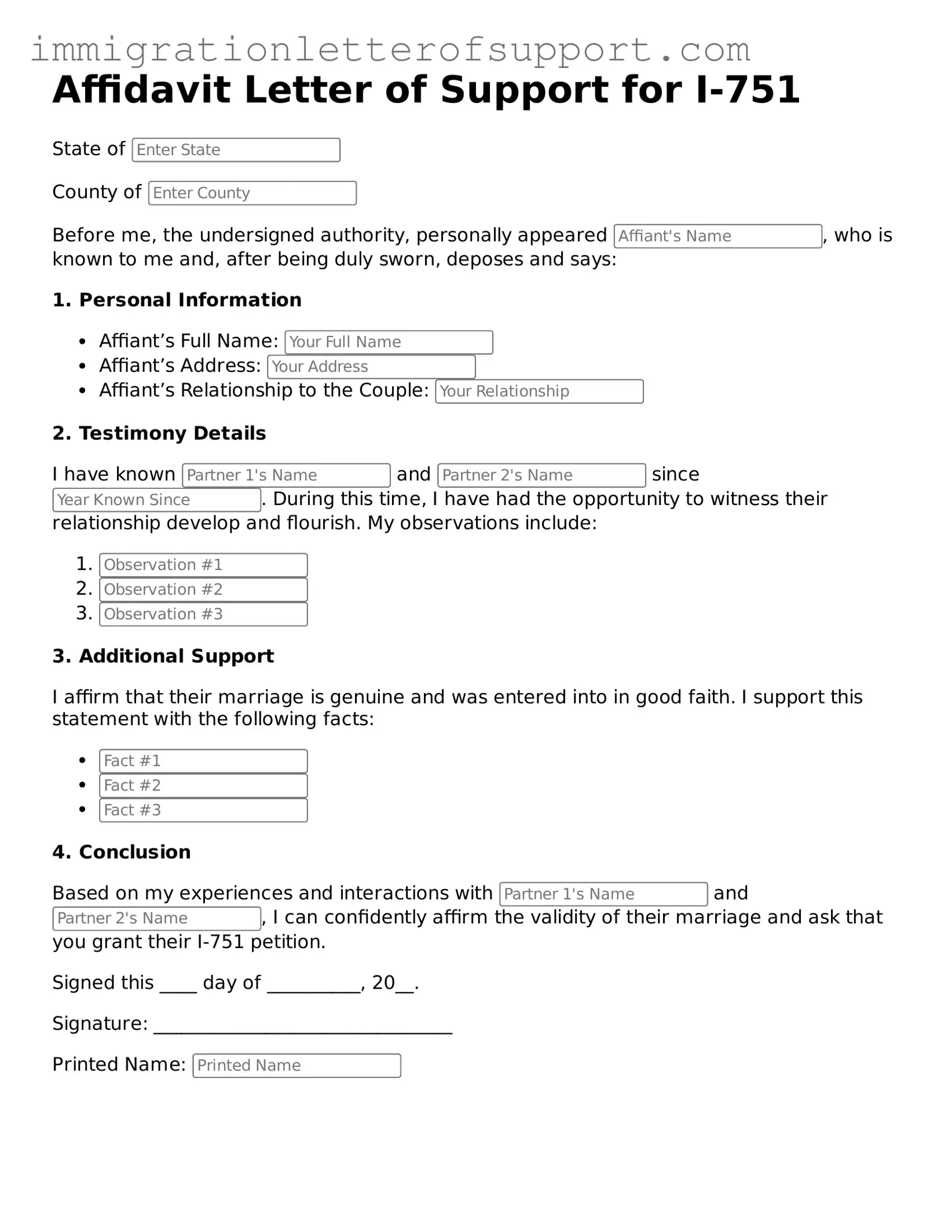An Affidavit Letter of Support is a document that provides evidence of a genuine marriage when applying for the I-751 form, which is necessary for removing conditions on residency for individuals who obtained their status through marriage. This letter is typically written by friends, family members, or colleagues who can attest to the authenticity of the marriage. It serves as a supporting statement to reinforce the applicant's claim that the marriage is legitimate and not solely for immigration benefits.
Who can write an Affidavit Letter of Support?
Any person who has firsthand knowledge of the couple's relationship can write an Affidavit Letter of Support. This includes:
-
Family members
-
Close friends
-
Colleagues
-
Neighbors
It is important that the writer knows the couple well and can provide specific examples of their relationship, such as shared experiences, events attended together, or observations of their daily life.
What should be included in the Affidavit Letter of Support?
The letter should include several key elements to be effective:
-
The writer's full name, address, and relationship to the couple.
-
A statement affirming the writer's belief that the marriage is genuine.
-
Specific details and anecdotes that illustrate the couple's relationship.
-
The writer's signature and date of the letter.
Including these components helps establish credibility and provides a clearer picture of the couple's life together.
The letter does not need to be overly formal, but it should maintain a respectful tone. It can be written in a personal style that reflects the writer's relationship with the couple. However, it should be clear and concise. Avoid using slang or overly casual language, as this may detract from the letter's seriousness.
Can an Affidavit Letter of Support be used in other immigration processes?
Yes, an Affidavit Letter of Support can be used in various immigration processes, particularly those involving marriage-based petitions. While it is most commonly associated with the I-751 form, it can also support applications for adjustment of status or other immigration benefits where proof of a genuine relationship is required. Each case may have specific requirements, so it’s essential to ensure that the letter meets the needs of the particular application.
